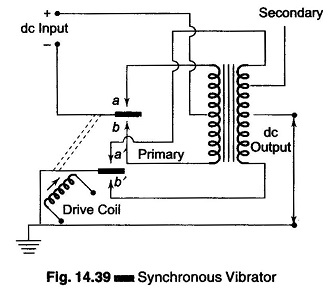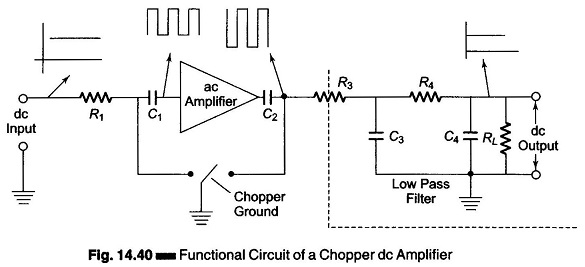Synchronous Vibrator and Synchronous Chopper:
Low dc current may be transformed into a high voltage dc by simple chopper action. Although an inductive type transformation process is required, the output dc may be obtained without rectifying devices. Figure 14.39 shows a circuit function of a synchronous vibrator.
Contacts a and b connect the input dc to the primary side of the transformer in an alternating fashion, thus producing an ac product. By adding another set of points to the normally composite vibrator reed, the output of the transformer can be rectified whenever a and b close the circuit in unison with the primary side contacts a’ and b’.
The output product will be unfiltered direct current. This principle of coinciding phase switching may be used in dc amplifier chopping circuits.
A functional diagram of a synchronous chopper is shown in Fig. 14.40. Using this chopper it is possible to obtain an amplified output signal of the original dc input from the ac amplifier. In this circuit no rectification is necessary to produce the dc signal. The proper polarity of the signal is always maintained in the proper phase.

